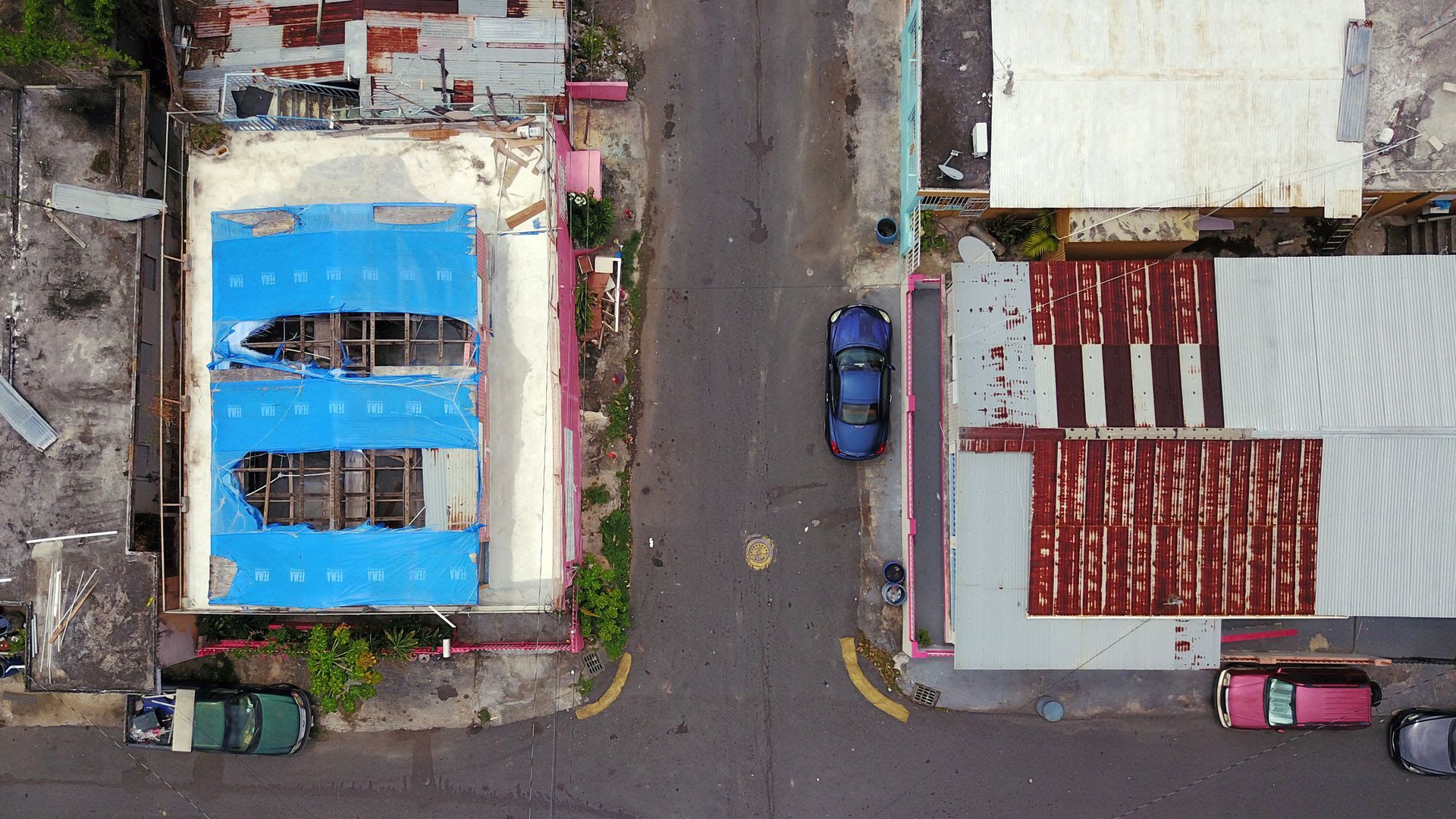Nov 27, 2019 - Science
The disparity in FEMA's hurricane aid between the Caribbean and mainland
Add Axios as your preferred source to
see more of our stories on Google.

A roof in San Juan, Puerto Rico, still shows damage from Hurricane Maria two years ago. Photo: Ricardo Arduengo/AFP/Getty Images
